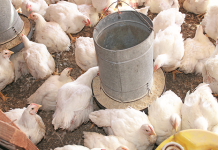"In light of the sharp depreciation of the rand, the South African economy this past week paid a high price for general uncertainty and the handling of problems in the labour market. The negative sentiment extends further than mere concern about wage demands and violent unrest. It is exacerbated by sharp increases in administered prices such as those of electricity and fuel, unhappiness with and mass action due to poor service delivery and alarming statements regarding property-related issues,” said Möller.
He said that debates in parliamentary budget votes serve as guidelines to which local as well as foreign investors respond. He regarded Minister of Agriculture, Fisheries and Forestry, Ms Joemat-Pettersson’s budget speech as moderate but was nevertheless concerned that her continued support for farm worker organisations could contribute to further unrest in the industry. However, he welcomed her initiatives to strengthen the production side of the industry with a view to food security and trade expansion.
Möller was of the opinion that the budget speech on Rural Development and Land Reform last Thursday had ended on a low note. He referred to Minister Nkwinti’s response to an opposition member’s warning that the reopening of land claims would create too much uncertainty, which could ultimately lead to food insecurity and may place South Africa on the Zimbabwean route. “Hopefully Minister Nkwinti’s comment in this regard, namely that the Zimbabwean land reform model is worthy of emulation (not a direct quote), had been made in the heat of the debate. However, the potential damage that remarks of this nature can cause should not be underestimated,” said Möller.
Over the past few years government, in consultation with the community, had developed good policy documents which, if implemented effectively, could result in a better and more prosperous society. The National Development Plan is a good example of this, which should be used more consistently by all role players.












